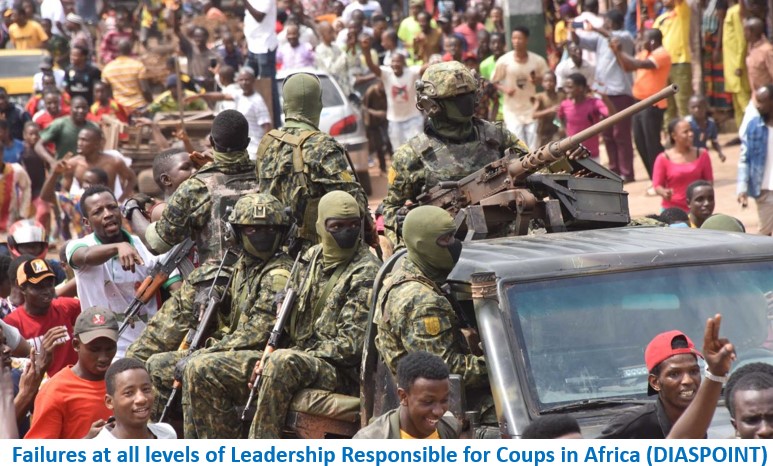Why African coups are making a comeback, from Zimbabwe to Gabon, while civilians applaud
Post By Diaspoint | September 15, 2023

- The failure of democracy to produce change is a major factor that invites coups.
- In countries that have a history of military rule, coups are more acceptable by the masses to address democracy’s failures.
- The UN, AU and other regional stakeholders are failing to deter coups.
In 2004, a coup was set in motion in Equatorial Guinea to dislodge strongman Teodoro Obiang Nguema Mbasogo, spearheaded by British mercenary Simon Mann and his band of mercenaries drawn from South Africa’s apartheid-era 32 Battalion.
The financier was Sir Mark Thatcher, the son of former British prime minister Margaret Thatcher.
It dead-ended when Mann, travelling in a Boeing 727, made a stop in Harare to refuel and load guns procured from the Zimbabwe Defence Industries.
Mann would later serve time in Zimbabwe while Thatcher was arrested in 2005 under South Africa’s anti-mercenary laws for funding a coup to the tune of R1.8 million.
He was found guilty and jailed for five years, with a fine of R7 million in today’s money.
In 2011, Mann appeared at Chatham House, also known as The Royal Institute of International Affairs, a think tank headquartered in London, England, to talk about the failed coup.
Hopes for change in Gabon after years of unpaid pensions
Giving Mann a platform was supposed to provide a cautionary tale, said Alex Vines, director of the Africa programme at Chatham House – but it went wrong.
“The purpose of doing the meeting was to show what a bad idea [the coup] was, not to be repeated,” he said.
“To my horror, I then received all sorts of emails from Equatoguineans asking for [Mann’s] phone number and contact details to try again.”
Vines told the story at another Chatham House debate, about coups and democratic renewal in Africa, on Monday, which dealt with civilians supporting coups where democracy had failed to bring the change they expected.
That was the case in November 2017 in Zimbabwe, when the opposition, civilians and ruling party Zanu-PF all converged in support of the army to remove the late president Robert Mugabe after 37 years in power.
Read More from original source
